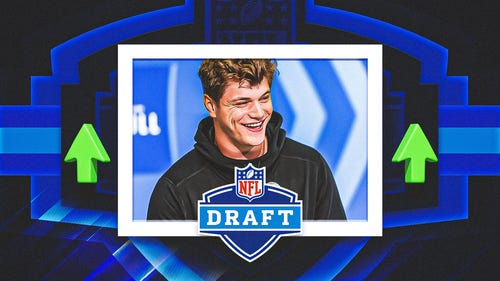
Immunity order for Aaron Hernandez's fiancee remains unsigned

FALL RIVER, Mass. – Will she or won’t she?
That’s the question that’s been swirling around the upcoming murder trial for former football star Aaron Hernandez for nearly a week – ever since his fiancée appeared at a closed-door hearing in which a judge heard a petition to offer her immunity from prosecution, a move that would pave the way for her to testify for the prosecution.
That request remained unresolved Tuesday – even as another roughly 375 people were summoned to the courthouse for the first round of jury selection for Hernandez’s upcoming trial in the June 17, 2013, murder of semi-pro football player Odin Lloyd.
If what prosecutors have alleged is true – that Shayanna Jenkins spirited the murder weapon out of the mansion she shared with Hernandez and ditched it – and she were to testify truthfully about it, it would be a major development.
Prosecutors have long alleged that Jenkins, acting on Hernandez’s orders, secreted the .45-caliber Glock used to kill Lloyd out of the home they shared, drove to an undisclosed location and got rid of it. Jenkins was indicted on a perjury charge, accused of lying to a grand jury 29 times about her knowledge of evidence in the case – including the gun – and her conversations with Hernandez, with whom she has a 2-year-old daughter.
On Jan. 7, Jenkins and her attorney spent more than an hour in a closed-door hearing with prosecutors before Judge E. Susan Garsh. It’s not clear how the hearing came about – the petition was sealed by the judge because it contains portions of Jenkins’ grand jury testimony, which is never made public. It’s also not clear why an order granting immunity wasn’t signed – the judge signed a similar order for one of Hernandez’s cousins the same day shortly after a similar hearing.
It’s possible that if Jenkins and prosecutors have reached an agreement to secure her testimony – a typical development when immunity petitions are filed – they are working out final language. It’s also possible the prosecution sought immunity over Jenkins’ objections, which is done in a small number of cases.
The bottom line: If the judge signs an order granting Jenkins immunity from prosecution, she loses her right to invoke the Fifth Amendment and refuse to answer any question when she testifies. If she were to refuse to answer a question, she could be held in contempt and jailed. And if prosecutors suspect that she testified untruthfully, she could face a new perjury charge.
Jenkins, 23, still lives in Hernandez’s North Attleboro mansion with their young daughter.
The perjury case against her has not been resolved, although it is possible the charges could be dropped at some point as part of an immunity deal. The prosecution will have to disclose that to the defense if, in fact, there is a deal struck.
Hernandez, 25, faces one count of murder and two firearms charges in the killing of Lloyd, who was gunned down in a secluded field less than a mile from the player’s home. Lloyd, 27, was dating Shayanna Jenkins’ sister, Shaneah Jenkins.
Prosecutors have alleged that the murder occurred after Hernandez summoned two associates from his hometown of Bristol, Conn., to his Massachusetts home late the night of June 16, 2013, and simultaneously made plans to meet with Lloyd. Hernandez then allegedly drove the other two men, Carlos Ortiz and Ernest Wallace Jr., to the Dorchester neighborhood of Boston, picked up Lloyd, and returned to North Attleboro.
According to court documents, Hernandez allegedly drove into a secluded area in an industrial park that is surrounded by woods and mounds of asphalt, gravel and dirt. There, Lloyd was shot multiple times.
Although prosecutors have not said who they believe fired the fatal shots, they have asserted that Hernandez “orchestrated” the killing. Ortiz and Wallace have also been indicted on murder charges but will be tried separately. The prosecution does not plan to call either as a witness in the trial.
Under a Massachusetts law known as “joint venture,” prosecutors do not have to prove Hernandez fired the fatal shots to convict him of murder – they merely need to convince the jury that he knowingly played a role in Lloyd’s death.
The process of picking a jury for Hernandez’s trial has included three days of potential panel members filling out extensive questionnaires. On Wednesday, prosecutors and defense attorneys will spend the day going over those questionnaires, and on Thursday they will appear before Judge Garsh and go through the process of seeking to dismiss an unknown number of potential jurors for what is known as “good cause.”
On Friday, the judge will begin the process of questioning potential jurors individually in the courtroom, a process that will go on until a jury of 18 – which will include six who ultimately are designated as alternates – is picked.
Each side will also have the right to dismiss as many as 18 potential jurors for no stated reason.
From the beginning, the effort to locate the murder weapon has been a source of frustration for investigators, who know from shell casings found at the scene that the pistol that fired the fatal shots was a Glock.
According to court documents, images from Hernandez’s home surveillance system show him holding what is alleged to be a black handgun minutes after Lloyd was killed.
Prosecutors previously asserted that Jenkins repeatedly misled the grand jury about her actions the day after the murder, contending that she could not recall details.
According to previously released court documents, Hernandez sent a text message to Jenkins the day after Lloyd was killed.
It read: “Go in back of the screen in movie room when u get home an there is the box avielle likes to play with in the tub jus in case u were looking for it!!!! Member how u ruined that big tv lmao WAS JUST THINKIN bout that lol wink wink love u TTYL ..... K”.
Prosecutors have asserted that was a coded message directing Jenkins to get rid of the gun.
A short time later, prosecutors have alleged, Jenkins took a heavy object – such as a gun lock box – out of the home inside a trash bag, put it in the trunk of her sister’s car, and drove away. She was gone a little more than a half hour, and when she returned the trash bag and the object inside it were no longer in the car, according to court documents.
According to court documents, her sister, Shaneah Jenkins, was later told by one of her uncles that Hernandez called Shayanna Jenkins, that she handed the phone to him and others and that Hernandez wanted “weapons taken out of the house.” The uncle would also tell Shaneah Jenkins that the weapons were ditched in “the woods.”
Investigators later found a .22-caliber Jiminez pistol a short distance from Hernandez’s home that court papers describe as looking as though it was tossed from a car.
The area where Hernandez’s home is located is adjacent to areas that are forested.
Prosecutors have also alleged that Shayanna Jenkins lied when she told the grand jury she did not know what happened to a white sweatshirt belonging to Hernandez. Previously released court documents have said Hernandez was wearing a “very light-colored or white hooded sweatshirt” at the time Lloyd was killed.
The immunity order that Judge Garsh has already signed was for Hernandez’s cousin, Jennifer Mercado. It is not clear what her testimony might cover. Her sister, Tanya Singleton, was earlier convicted of contempt for refusing to testify before the grand jury and was sentenced to home confinement. Singleton also faces an unresolved charge of accessory after the fact to murder, accused of helping Wallace flee to Florida after Lloyd’s murder.
Hernandez has separately been indicted on multiple murder and assault charges in a July 16, 2012, shooting in South Boston that left two men dead and another wounded.
In the Boston killings, prosecutors have alleged that Hernandez became enraged after a man bumped him on a nightclub dance floor, spilling his drink, and failed to apologize. Later, they alleged that Hernandez followed the man and his friends as they drove away from the club, then pulled up next to their car at a stoplight and opened fire with a .38-caliber revolver, killing Daniel De Abreu, 29, and Safiro Furtado, 28, and wounding another man.
That trial was originally scheduled to begin May 28, but the judge there indicated recently he would push it back given the anticipated length of the trial in the Lloyd case. No new trial date has been set.















































































































































